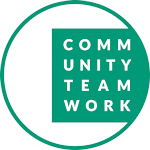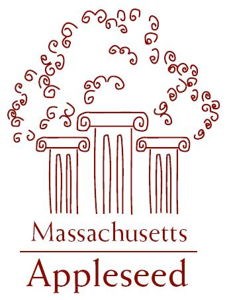Do you have a suggestion for a resource program and/or organization we should add? Share a Resource through the new resource request form or e-mail us the resource details and we'll follow up with the organization directly.

We serve people who are homeless, facing foreclosure or eviction people, or ready to purchase a home or launch a small business. Provides support and services for low-income people. Call for services and addresses.
978-459-0551

COMPASS offers a community-based jobs program for homeless parents. COMPASS structures technical training, internships, and employment partnerships that are best suited to local transitional jobs that track toward self-sufficiency careers and a brighter future for families. The program runs in ongoing cycles and offers five different programming “tracks" – designed to specifically meet a parent's employment training and job placement needs.

We work to give consumers the information they need to understand the terms of their agreements with financial companies. We are working to make regulations and guidance as clear and streamlined as possible so providers of consumer financial products and services can follow the rules on their own.

MA Appleseed’s mission is to promote equal rights and opportunities for Massachusetts residents by developing and advocating for systemic solutions to social justice issues.
As part of one of the nation’s largest pro bono legal networks, we have been instrumental in leading vital systemic reform initiatives for over fifteen years. Among our accomplishments Improving access to education for homeless children.

Low-income Massachusetts residents who need help paying for healthy food for their families or need assistance after a financial setback may qualify for temporary food and/or cash assistance programs to improve the quality of their lives.
http://www.mass.gov/portal/articles/massachusetts-food-and-cash-assistance.html

Operation A.B.L.E. (Ability Based on LongExperience) serves as an employment and training resource for an economically, occupationally, and racially-diverse population of job seekers age 45 and older.

We are a community center for poor and homeless women — meals, advocacy, food pantry, lockers, laundry, showers, shelter, ESOL classes, computer classes, pre-GED tutoring, job counselor, housing search, legal services, outreach, public policy, organizing, arts workshops, mental health worker, credit counselor, wellness programming

The Salvation Army's Adult Rehabilitation Centers and Harbor Light programs have provided spiritual, social, and emotional assistance for men and women who have lost the ability to cope with their problems and provide for themselves. Centers offers residential housing, work, and group and individual therapy, all in a clean, wholesome environment.

(NCSET) coordinates national resources, offers technical assistance, and gives information related to secondary education and transition for youth with disabilities in order to create opportunities for youth to achieve successful futures.

The Young Adult Vocational Program (YAVP) is a transitional program that provides daily structure for young adults with psychiatric disabilities. The program’s mission of integrating the individual back into the community is accomplished through daily structured groups and individualized support. Groups have been established to help build pre-vocational, vocational, and educational skills, as well as daily life skills as they relate to work or school. Specific skill areas that have been targeted include:

TRA has made it possible for thousands of educationally and economically disadvantaged youth and adults to improve the quality of their lives. Our clients have been successful in:

Young people need safe and enriching environments to try new things, develop skills, meet new people and show what they're capable of. Achieving and maintaining health in spirit, mind and body makes for a richer life and giving back to neighbors and those in need is our responsibility as neighbors, colleagues and citizens. The Y defines our areas of focus–the programming you're part of every day.

There are many paths to college for students with disabilities. Some students may want to take a traditional path, such as applying to four-year or two-year colleges. Or they may want to pursue specialized training at a vocational or technical school to earn an occupational certificate. Some students might be more comfortable applying to a college or program within a college that is specifically designed to support students with disabilities. No matter what path students choose, there are ways for them to get the assistance and accommodations they need to succeed in college.